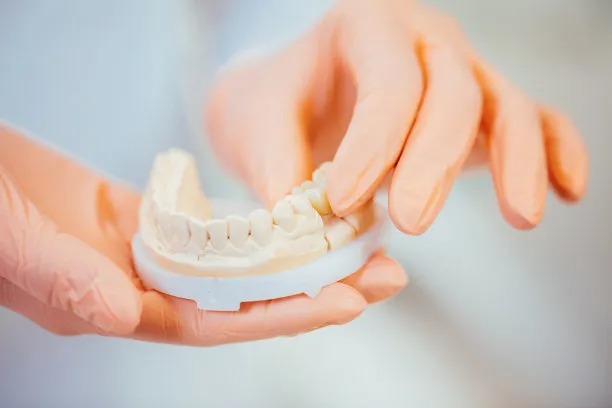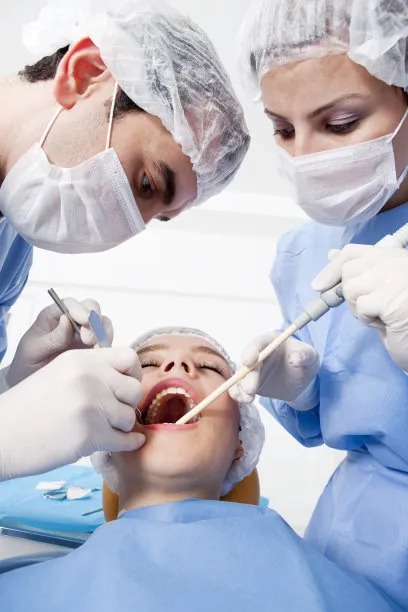Summary: Dental fillings are vital for restoring the functionality and aesthetics of damaged teeth, but ensuring their success relies on several key precautions. This article discusses essential measures to take before, during, and after the dental filling procedure, as well as tips for maintaining good oral health. Each of these components plays a crucial role in achieving a successful filling, preventing further dental issues, and promoting overall well-being. By following these guidelines, patients can not only enjoy a more pleasant dental experience but also equip themselves with the knowledge to maintain their oral health effectively.
1. Preparing for a Dental Filling Appointment

Preparing for a dental filling appointment is crucial to ensure a smooth and efficient process. The first step involves communicating openly with your dentist about any allergies or concerns you may have. This dialogue fosters a better understanding of your dental history, allowing the dentist to tailor the treatment to your specific needs.
Another important preparation step is to avoid consuming food or beverages before the appointment, especially if sedation is used. This precaution minimizes the risk of nausea during treatment and helps ensure a more comfortable experience overall. Remember to keep your mouth as clean as possible by maintaining an excellent oral hygiene routine leading up to the visit.
Finally, consider arranging transportation if you expect to feel groggy after sedation. Having a friend or family member to escort you home can relieve stress and ensure your safety while recovering from the procedure.
2. Understanding the Dental Filling Procedure
Understanding the dental filling procedure can alleviate anxiety and empower patients to make informed decisions. Generally, the process begins with a thorough examination where the dentist assesses the extent of tooth damage. Advanced diagnostic tools like X-rays may be used to ascertain the best course of action.
Once the assessment is complete, the dentist prepares the tooth by removing decay and cleaning the area. Proper sterilization is vital to reduce the risk of infection and enhance the longevity of the filling. The dentist will then choose the appropriate material for the filling, which can include composite resin, amalgam, or porcelain, each having its unique benefits.
Lastly, the dentist will shape and polish the filling to ensure it integrates well with the surrounding teeth. This detail not only enhances aesthetics but also prevents future dental issues related to improper fitting or stress on the tooth. Understanding these steps contributes to a more relaxed experience during the procedure.
3. Post-Filling Care for Optimal Recovery
Post-filling care is essential for optimal recovery and to extend the longevity of your dental filling. Following the procedure, it鈥檚 important to avoid hard or sticky foods for at least 24 hours to allow the filling to set properly. Eating soft foods can significantly reduce the risk of damaging the filling during its initial phase.
Maintaining proper oral hygiene is equally vital after receiving a filling. Gently brushing the teeth and flossing around the filling ensures that food particles and plaque do not build up, which can lead to complications. However, patients should be cautious around the filled area until they are certain it is fully healed.
Regular dental check-ups are crucial in monitoring the condition of the filling. During these visits, your dentist can identify any potential issues early on, ensuring prompt treatment. Consequently, this vigilance can help prevent more extensive and costly dental work down the road.
4. Long-Term Strategies for Maintaining Oral Health
Long-term oral health maintenance extends beyond your recent filling and involves cultivating a healthy dental routine. Brushing twice daily with fluoride toothpaste aids in preventing cavities and decay. Flossing daily is equally essential, as it reaches areas that toothbrushes cannot and keeps the gums healthy.
Additionally, consider incorporating mouthwash into your daily routine. Antimicrobial mouthwashes can help reduce plaque buildup and enhance gum health, ultimately securing the integrity of your dental fillings. Avoiding sugary snacks and beverages can also play a significant role in maintaining oral health, as sugar feeds harmful bacteria that can lead to decay.
Lastly, regular dental visits every six months can significantly contribute to long-term oral health. Professional cleanings and exams allow for early detection and intervention regarding any dental issues. Staying proactive with your oral health will not only ensure the longevity of your fillings but also contribute to overall well-being.
Summary:
In summary, ensuring a successful dental filling and maintaining oral health effectively involves a series of essential precautions. Preparing for the appointment, understanding the procedure, adhering to post-filling care, and developing long-term oral health strategies are all crucial elements. By prioritizing these measures, patients can achieve better dental outcomes and foster lasting oral health.
This article is compiled by Vickong Dental and the content is for reference only.
Vickong Dental
Vickong Dental is a large medical group established in Hong Kong in 2008 by professors from well-known medical universities in Guangdong and Hong Kong, as well as medical doctors from key national '985' universities (including Master's supervisors and senior professors). The chain of branches brings together expert dentists with PhDs and Master's degrees from Hong Kong and Mainland China, committed to providing high-quality dental treatment.
"Vickong Dental Practices the University Motto of 'Healing and Serving Society,' with a Stable Operation for Sixteen Years. It Has Been honored with Hong Kong Enterprise Leaders's Choice,' and is a Global Trusted Implant Center for the Nobel Implant System. Recommended by Hong Kong Metro Broadcast and Guangdong Television, it Serves Customers from Over Thirty Countries and Regions, Gaining the Trust and Favor of Citizens from the Guangdong-Hong Kong-Macau Greater Bay Area and Surrounding Cities.

Thousands of customers' unanimous praise
The most recognized and highly recommended dental service by customers in the Guangdong-Hong Kong-Macau Greater Bay Area
We Ensure You Receive Detailed Care and Attention Here
Hong Kong standards, Shenzhen prices, Your Trusted English-speaking dentists

Vickong Dental Medical-Grade Instrument Disinfection Process
Vickong Dental Medical-Grade Instrument Disinfection Process

Vickong Dental Chain: A Warm and Comfortable Environment for Treatment






Appointment Hours

Q&A
Why choose Vickong Dental?
Vickong Dental practices the university motto 「Medicine to Benefit Society」, with each branch bringing together highly qualified dentists with doctoral and master’s degrees from Hong Kong and the Mainland, and has maintained seventeen years of steady operation。Recipient of 「2024 Hong Kong Enterprise Leaders Brand」, 「2025 Hong Kong Enterprise Leaders Brand」, a Nobel Biocare Global Trusted Implant Center, and a brand recommended by Metro Radio Hong Kong and Guangdong TV。
To date, we have served customers from more than thirty countries and regions,earning exceptionally high word-of-mouth recognition and trusted recommendations from residents across the Guangdong-Hong Kong-Macao Greater Bay Area and surrounding cities
We have eight major branches in Zhuhai、Shenzhen,and a consultation and service assurance center in Hong Kong,so you can book a free consultation at any time for any questions,which is very reassuring.
If I do not accept the quotation after the CT scan, will I be charged??
No! As long as the actual treatment has not started, you will not be charged any fees.
Will there be any additional charges during the treatment process?
No, there won’t be any additional charges. Before treatment begins, we will clearly explain the treatment plan and its corresponding fees. Only after the patient agrees and signs the consent form will we proceed with the dental service.
Can I pay in Hong Kong dollars?
Yes. Vickong Dental accepts payment in Hong Kong dollars. The amount will be converted based on the exchange rate of the day, and the applicable rate will be clearly communicated to you in advance.
Can I reschedule my appointment at any time?
Yes. Please contact us via **WeChat** or **WhatsApp** as early as possible, providing your original appointment time and details, along with your preferred new date and time slot for rescheduling.













